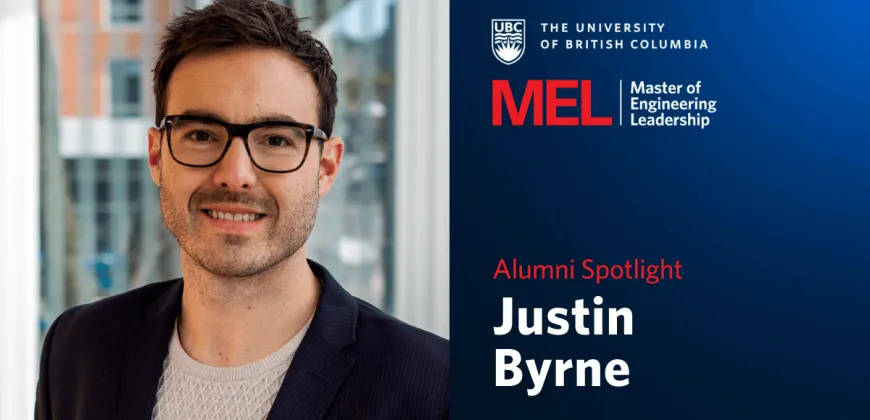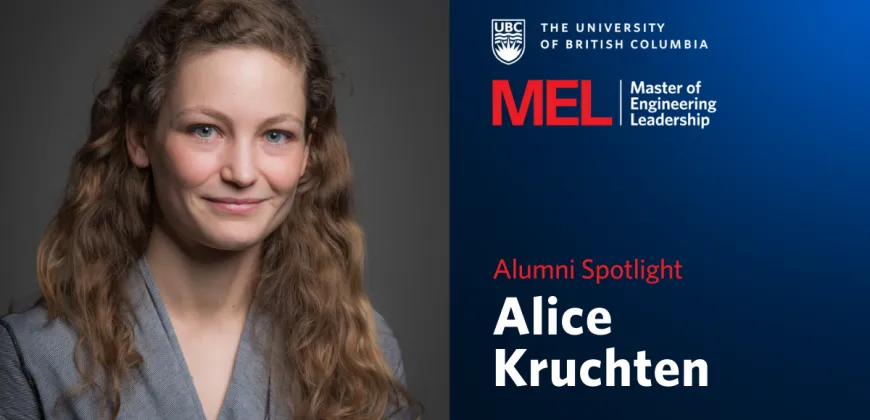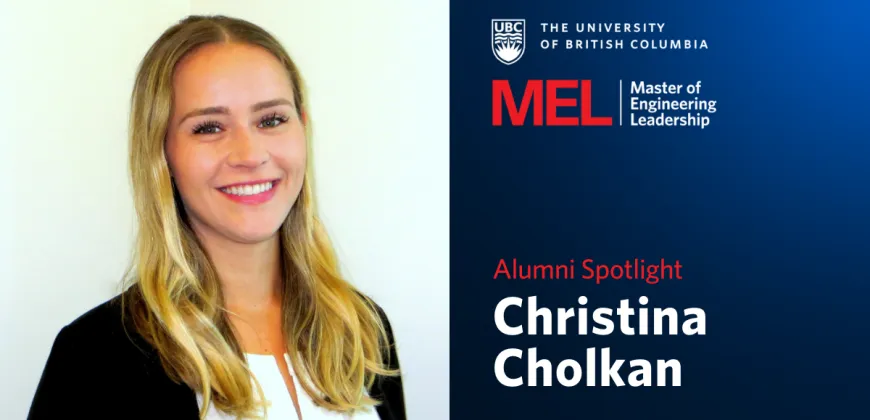Alumni Spotlight: Justin Byrne
Going back to school for a professional master’s degree is enabling Justin Byrne to return to his roots in water engineering while gaining the practical business and leadership skills to advance within his field.

After completing a diploma in water engineering technology, Justin Byrne went on to do a bachelor of science and then started his own environmental consulting company, working for eight years in Alberta and Saskatchewan’s oil and gas industry.
“I did a bit of everything – from consulting on construction and drilling to remediation work – but I primarily looked after drilling waste disposal and water diversion and ensured companies were complying with regulations.”
While he excelled in his work, Justin was looking to get back to his roots in water engineering, and he thought a professional gradate degree was a strong option for expanding his opportunities.
“I know how important water is to every industry, and I was interested in learning more about best practices in sustainable water management. I also wanted to diversify my knowledge beyond water management issues in the oil and gas industry.”
The integration of business and engineering classes in the Master of Engineering Leadership (MEL) degree was a key selling point. “I ran my own company, so I understand the workings of business,” he says. “But that was also at a small scale, and I recognized I could learn more about elements of management, leadership and strategy.”
A broad overview of water management
“One of the first things our environmental fluid mechanics professor said to us is that ‘water is weird,’” says Justin. “And it’s true. We take water for granted as it’s just part of our daily life. But it behaves in unique and interesting ways—and it was definitely interesting to take the time to explore that in depth.”
A course on chemical and biological treatment options for water and wastewater built on his professional experience while advancing his understanding of ways to effectively treat water used in industrial practices before it is returned to the natural environment.
Classes on water resource engineering, hydrology, management strategies and water resource systems planning all advanced his technical knowledge, while also reinforcing how important it is that professionals working in this field have a holistic, multidisciplinary understanding of key issues.
Learning the language of business
With eight years of experience running his own company, Justin was very familiar with the fundamentals of business.
However, he says that the MEL’s business courses – which represent 30% of the curriculum and are taught through UBC Sauder’s Robert H. Lee Graduate School – exposed him to new knowledge about strategy, management and leadership.
“The Sauder courses gave me the ability to speak the language of business so that I’m confident collaborating and interacting with people at all levels of an organization,” he says.
The business courses bring together all nine MEL and Master of Health Leadership and Policy programs so that students collaborate on group projects with those in fields ranging from clean energy to urban systems planning to seniors care.
“This means you are constantly working with a very diverse group of individuals,” says Justin, “which ultimately increased my level of confidence as a collaborative leader. Also, every single course—whether it was in business or engineering – required us to share our ideas and findings in formal presentations, which added to my skills and comfort with public speaking.”
Looking ahead
After graduating at the end of 2019, Justin began looking for positions where he could contribute his knowledge of sustainable water management practices and business and leadership skills. However, with the COVID-19 pandemic resulting in hiring freezes across most sectors, he’s waiting for the crisis to resolve before making his next move.
“This degree allowed me to advance my understanding of water management while gaining new business knowledge,” he says.
“The integration of those two components will enable me to contribute meaningfully at all levels of an organization. Being able to clearly communicate both technical issues and business issues with specialists and non-specialists alike is essential in contributing to better business decisions and strategies.”


